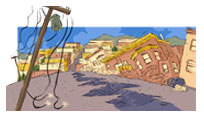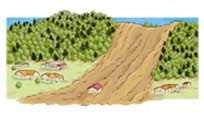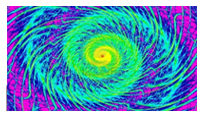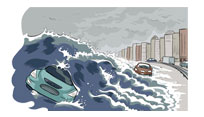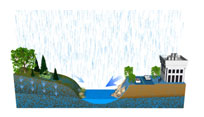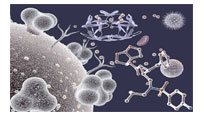Earthquakes
If trapped under debris
- Do not light a match.
- Do not move about or kick up dust.
- Cover your mouth with a handkerchief or clothing.
- Tap on a pipe or wall so rescuers can locate you. Use a whistle if one is available. Shout only as a last resort. Shouting can cause you to inhale dangerous amounts of dust.
- Keep calm, switch on the radio/TV and obey any instructions you hear on it.
- Keep away from beaches and low banks of rivers. Huge waves may sweep in.
- Expect aftershocks. Be prepared.
- Turn off the water, gas and electricity.
- Do not smoke and do not light matches or use a cigarette lighter. Do not turn on switches. There may be gas leaks or short-circuits.
- Use a torch.
- If there is a fire, try to put it out. If you cannot, call the fire brigade.
- If people are seriously injured, do not move them unless they are in danger.
- Immediately clean up any inflammable products that may have spilled (alcohol, paint, etc).
- If you know that people have been buried, tell the rescue teams. Do not rush and do not worsen the situation of injured persons or your own situation.
- Avoid places where there are loose electric wires and do not touch any metal object in contact with them.
- Do not drink water from open containers without having examined it and filtered it through a sieve, a filter or an ordinary clean cloth.
- If your home is badly damaged, you will have to leave it. Collect water containers, food, and ordinary and special medicines (for persons with heart complaints, diabetes, etc.)
- Do not re-enter badly damaged buildings and do not go near damaged structures.



